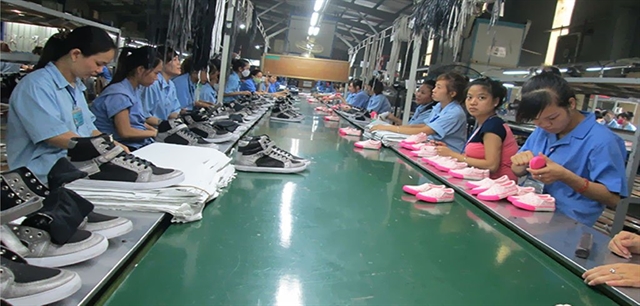While most textile and footwear enterprises in Việt Nam struggled to find alternative sources of raw materials to maintain production, some with local sources have survived during the Covid-19 pandemic.

While most textile and footwear enterprises in Viet Nam struggled to find alternative sources of raw materials to maintain production, some with local sources have survived during the COVID-19 pandemic.
Truong Van Cam, vice chairman and general secretary of Viet Nam Textile and Apparel Association, said due to the heavy dependence on supplies from China, most of the firms lacked raw materials.
Cam said: “They are now either shifting to import raw materials from other countries or using domestic ones.”
However, he said: “The diversification of sources of imported raw materials takes time and is more expensive because of higher import prices, higher shipping and warehousing costs,” adding that: “Using domestic sources is a more feasible solution.”
Than Duc Viet, general director of May 10 garment firm, said together with the largest supplier of China, his firm also used a variety of fabric sources from over 600 different suppliers in the world to make their shirts.
Though Viet felt the burden of loan interest and debt repayments as well as the risk of order cancellations from customers in such a difficult time, his firm with alternative raw materials can maintain production in the next few months.
For the longer period, Viet said: "Currently, we are considering using the local resources of fabric, but we must negotiate with partners to postpone or extend delivery time, as well as change the requirement of origin to be able to use those sources.”
Nguyen Van Thoi, chairman of TNG Investment and Trading Joint Stock Company, said as the majority of the firm’s orders was the free-on-board (FOB) which their customers prepared raw materials early, “we have sufficient input for production until the end of the first half of the year and are planning sources for the third quarter and the whole year now.”
Thoi added: “Compared to last year, our traditional customers have increased their orders in 2020. For example, Decathlon (France) increases their orders by 29 per cent while Spormaster (Russia) increases by 73 per cent.”
After the first two months, TNG achieved a total revenue of VND559.5 billion (US$23.8 million), up 4 per cent compared to the same period in 2019. In 2020, TNG expects revenue growth of about 10 per cent to reach VND4.9 trillion for the whole 2020.
With 70 per cent of the materials from local sources, Nguyen Thanh Tung, director of Ha Tay Chemical Weave Company which produced vulcanised shoes, sports shoes and injection shoes to export to Europe, Japan and South Korea, said: “Most domestic suppliers can meet our production demand.”
With a maximum capacity of 120,000 pairs of shoes per month, Tung’s firm still ordered 30 per cent of the materials from other countries. Now, he was negotiating with customers to ask them to change those outside sources to local ones. — VNS





